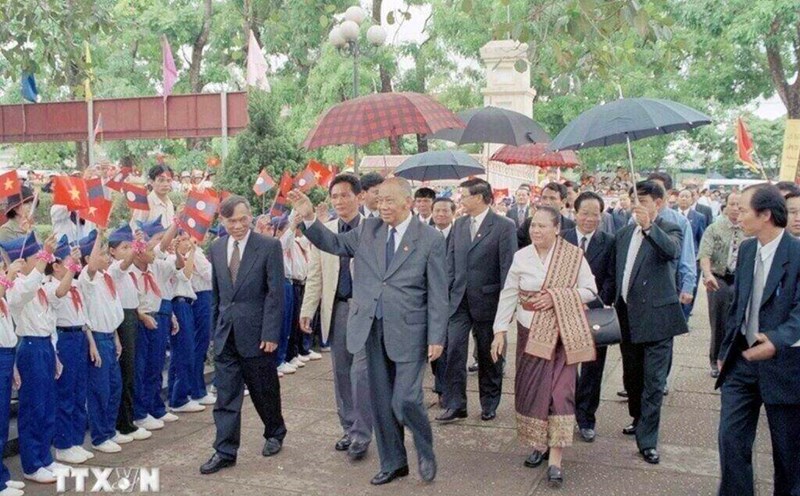According to the Strategy for the development of Vietnam's automobile industry until 2025, the vision to 2035 was clearly stated by the Prime Minister in Decision 1168/QD-TTg, dated July 16, 2014, with the goal of reaching about 1,531,400 units by 2035, of which 9-seat cars will be about 852,600 units, from 10 seats or more will be about 84,400 units, trucks will be about 587,900 units, and specialized vehicles will be about 6,500 units. The country currently has 377 automobile enterprises with a designed output of over 750,000 vehicles/year, of which 169 are FDI enterprises, accounting for 46.43%.
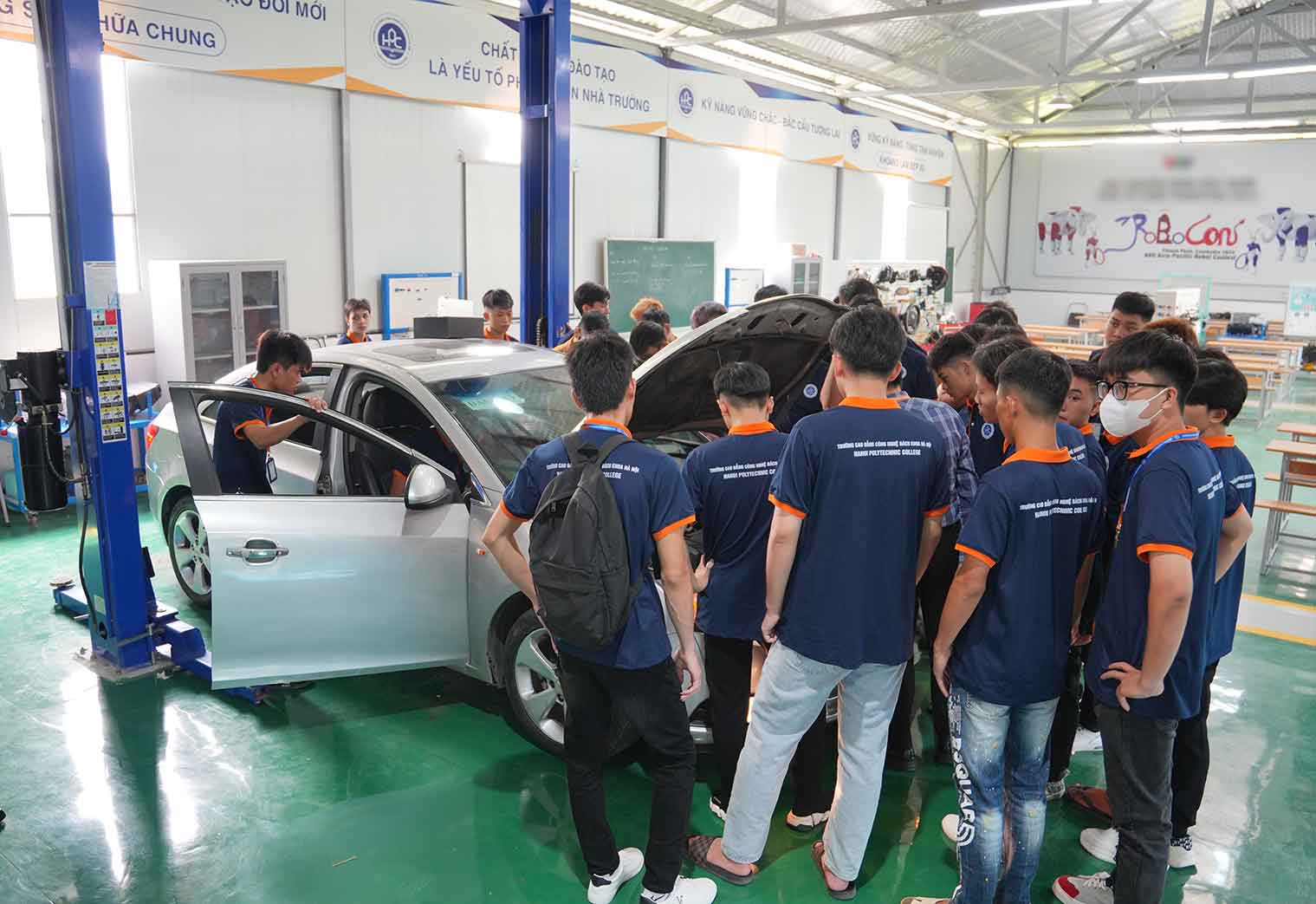
With a long-term development orientation, the demand for human resources to serve this industry is huge, especially high-quality human resources with solid skills and mastered advanced technologies. Not stopping outside the race, many educational institutions have increased investment in building training programs to meet the needs of learners and practical needs. In particular, the goal of practice is the core content of the curriculum. In that context, Hanoi College of Technology (HPC) has invested tens of billions of VND to build a modern automotive practice workshop, providing students with a training environment close to reality.
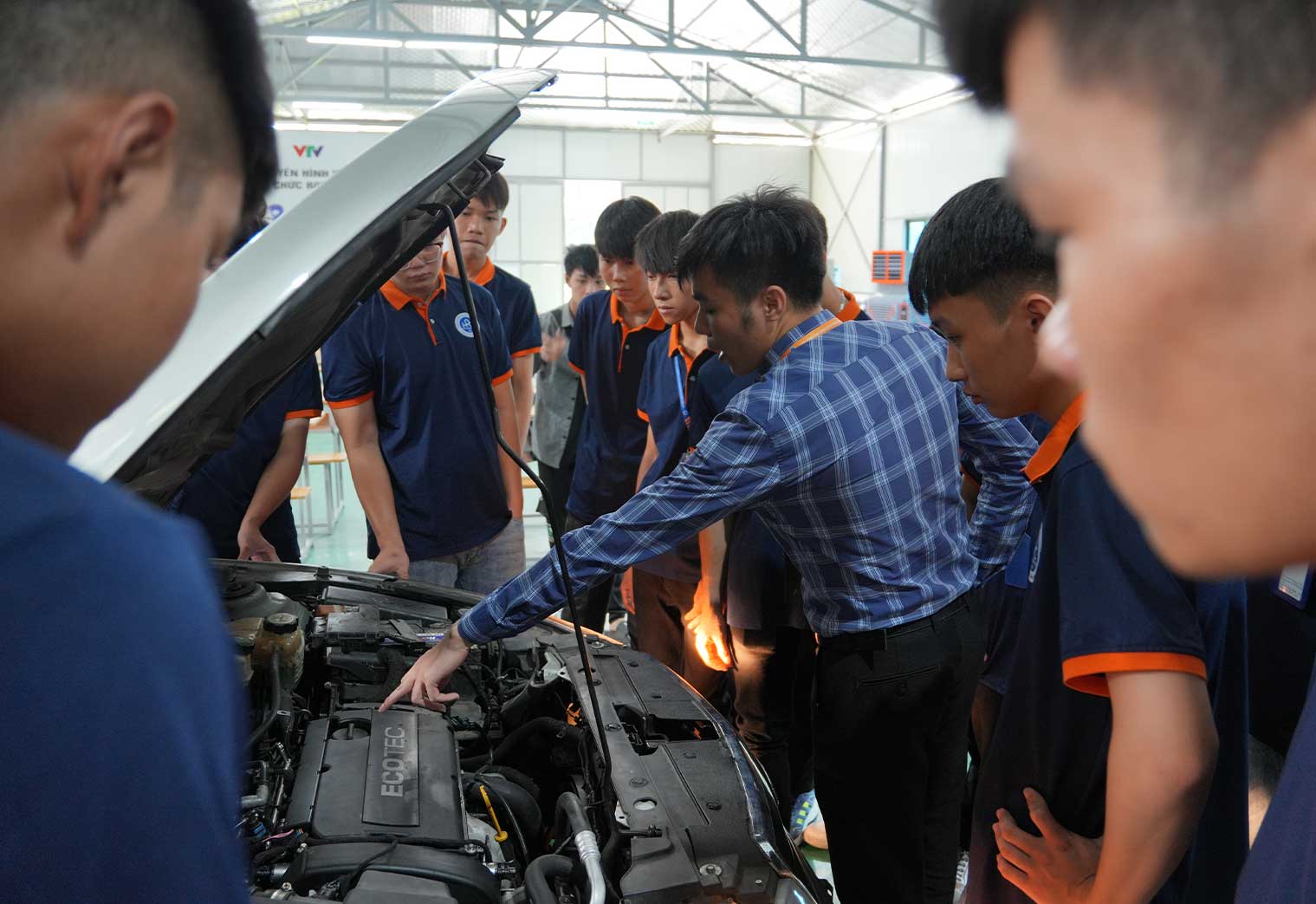
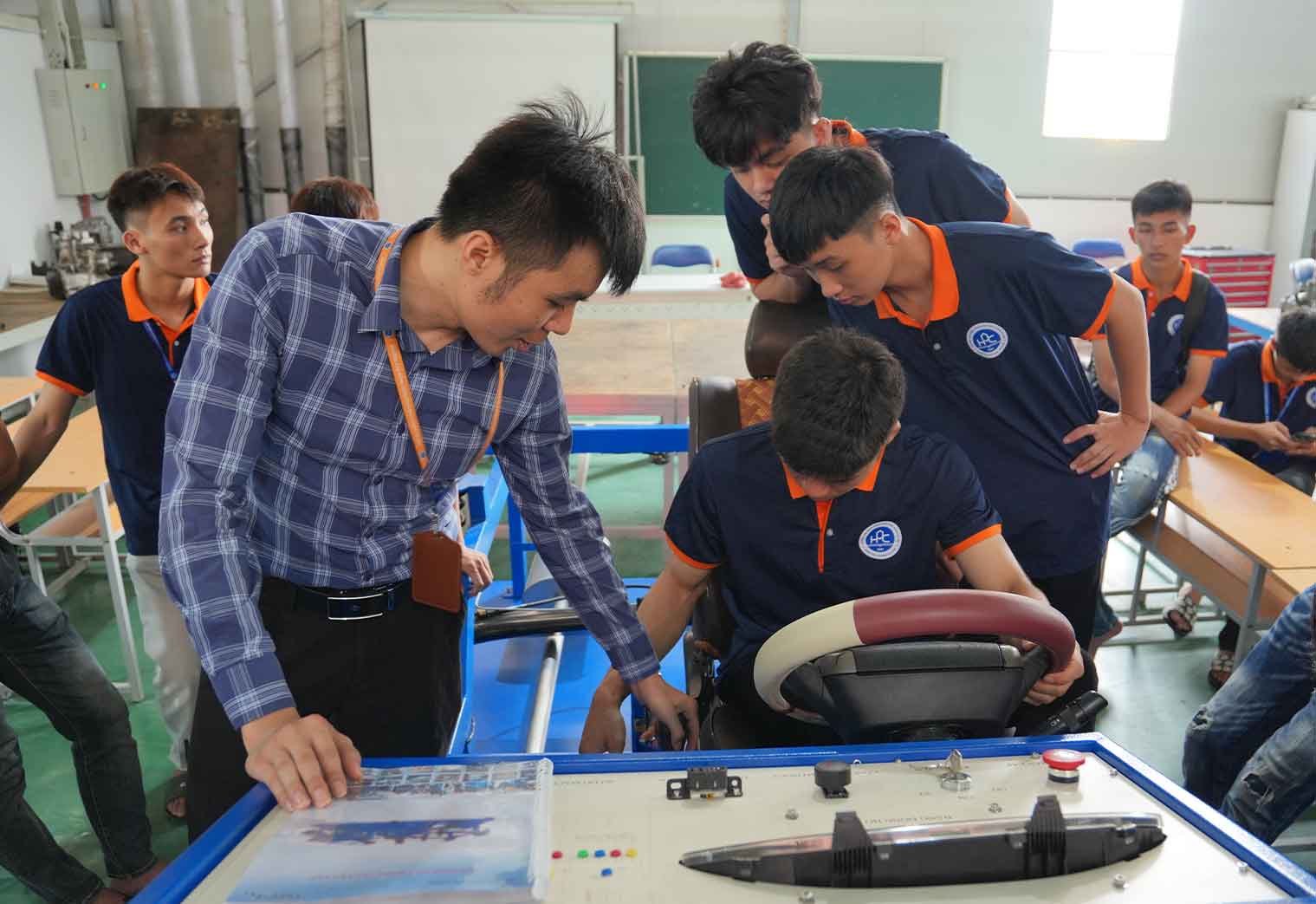
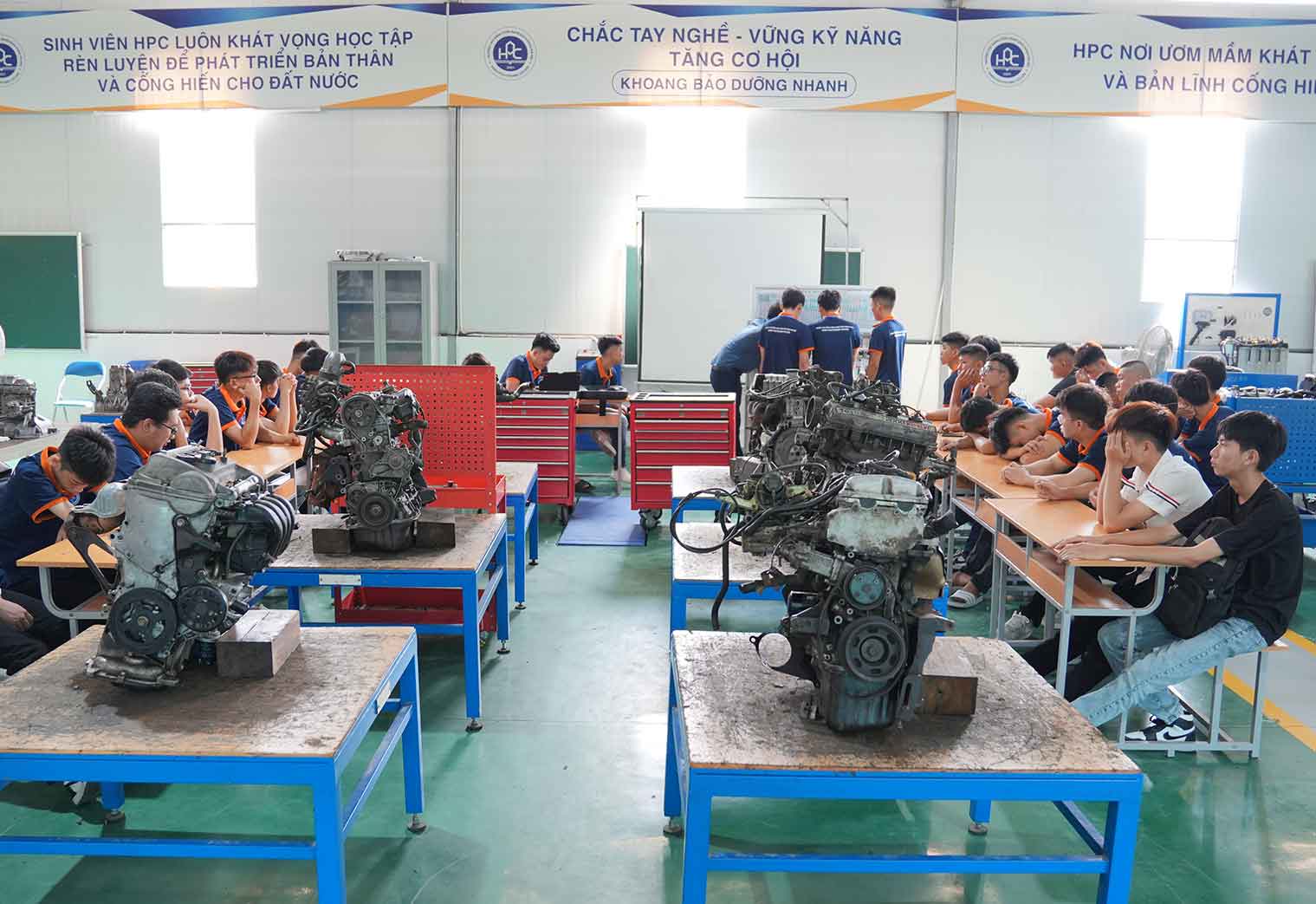
With an investment of up to 10 billion VND, the automobile workshop of Hanoi College of Technology and Science is equipped with the most advanced machinery and equipment system, fully meeting the training standards for professional automotive technicians. Students not only learn theory but also directly practice on general vehicle models, electrical - electronic systems, engines, common Rail CDI fuel spraying, automatic transmission, air conditioning, power steering systems and many other modern technologies that are being applied on new generation vehicles.
Mr. Do Ngoc Son - Deputy Head of HPC Automobile Technology Department shared: "Practicing on advanced equipment helps students not only master their skills but also practice thinking, analyze and handle real-life incidents, thereby improving professional skills right in the learning process".
Not stopping at traditional training, Hanoi College of Technology is also a pioneer in updating the latest automotive technology trends. In the workshop, students have access to revolutionary technologies such as hybrid systems, electric vehicles, automatic sensors, and control technology using smart software. Learning is no longer just encapsulated in the curriculum but is a practical experience, directly "hand-held" so that students can master skills, have a deep understanding of operating principles and be ready to work right after graduation. We always focus on the practicality of teaching, so that students can work immediately after graduation without having to retrain, meeting the increasingly strict recruitment needs of businesses, Mr. Do Ngoc Son emphasized.
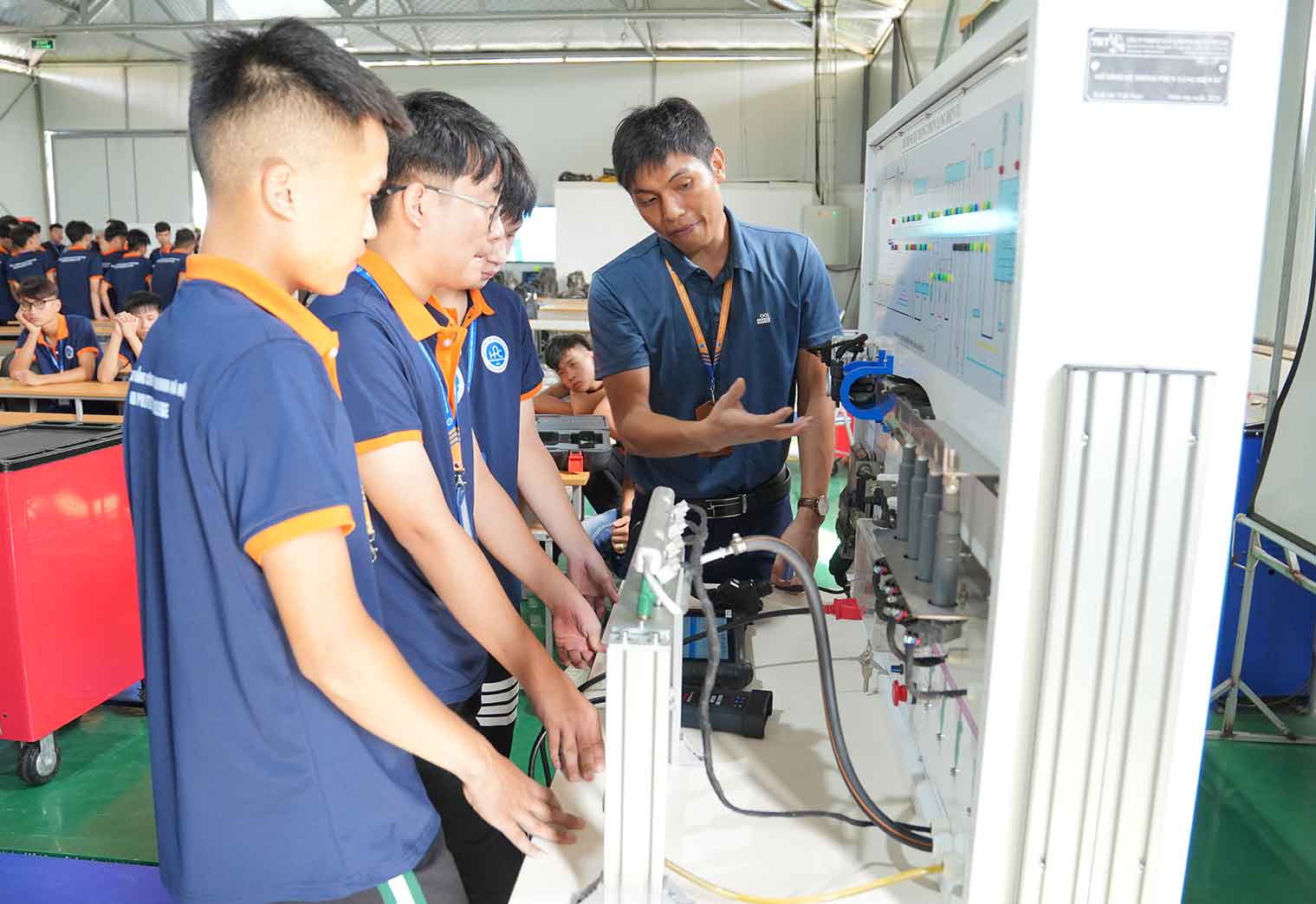
A bright spot in the training program of Hanoi College of Technology is the training model that connects businesses. The school continuously cooperates with major automakers, garages, maintenance centers and businesses in the industry to organize internships and practice, helping students have the opportunity to clash with reality and create professional relationships early. This is the key to helping HPC students not only be good at their profession but also have opportunities to expand in an increasingly competitive labor market.
Amid the strong wave of technological transformation in the automotive industry, investing systematically in facilities and hands-on training programs will create a remarkable difference for students in the job market. Helping students confidently master technology, ready to enter the profession with the mindset of professional automotive technicians and engineers.
The domestic automobile manufacturing industry currently has 56 enterprises participating in production and assembly, including 38 domestic enterprises (such as Truong Hai, TMT...) and 18 foreign enterprises (with famous brands such as Ford, Mercedes, Toyota, GM...). Some domestic enterprises have actively participated in the global automobile production chain such as Thaco, Vinfast... After more than 20 years, the average localization rate is 7-10%, such as Thaco buses have been localized for more than 60%; Thaco semi-trailers are exported to the US with a localization rate of 35-45%. Some car lines of Mazda and Peugeot are also 15-25% localized by Thaco.






